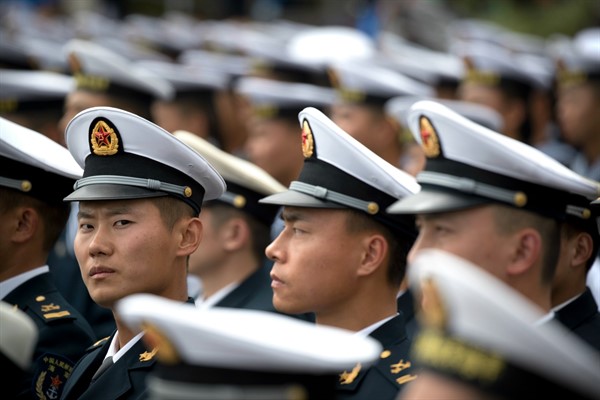As the coronavirus pandemic continues to monopolize the attention of leaders around the world, some observers have concluded that China is attempting to exploit the crisis for geopolitical gain. From its disputed western border with India to the contested waters of the South China Sea, an increasingly common narrative is that Beijing has stepped up its assertive behavior against its neighbors to settle old scores. Targets of China’s recent provocations include Taiwan and Hong Kong—which Beijing would like to see integrated with the mainland—as well as Malaysia, the Philippines and Vietnam.
Yet this narrative is exaggerated. The reality is that China had been engaging in precisely the same types of pressure tactics against these states and others for years prior to the pandemic. Chinese efforts to use military and paramilitary forces to threaten rivals in the region are not new, nor are Communist Party-led disinformation campaigns that propagate revised interpretations of sovereignty disputes to steadily chip away at the status quo. Almost all of the countries and territories that have found themselves in Beijing’s crosshairs since the crisis began have prior experience with Chinese coercion, at levels greater than or equal to what they are currently experiencing.
Taiwan, for instance, has been the target of China’s ire for decades because its government refuses to unambiguously recognize the existence of “one China” represented and controlled by Beijing. Tensions have been especially high since Taiwanese President Tsai Ing-wen, who has taken a firm stance toward encroachment from the mainland, was first elected in January 2016. Beijing is pulling out all the stops to cow Taipei into submission—an intimidation campaign that has many facets, including more military exercises near Taiwan.

